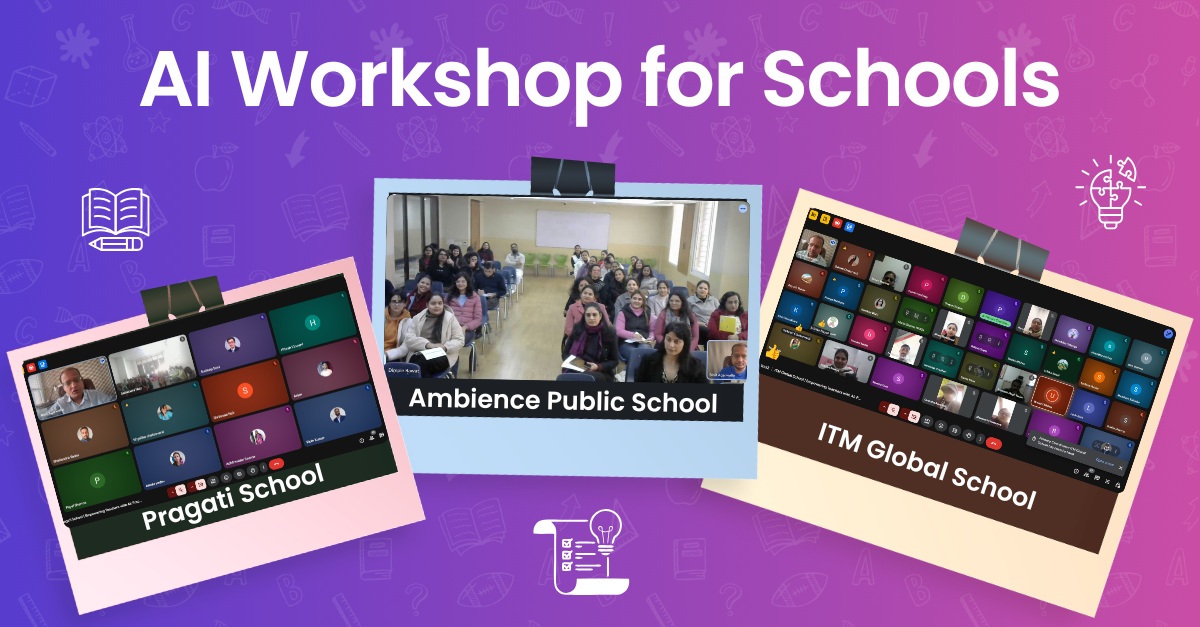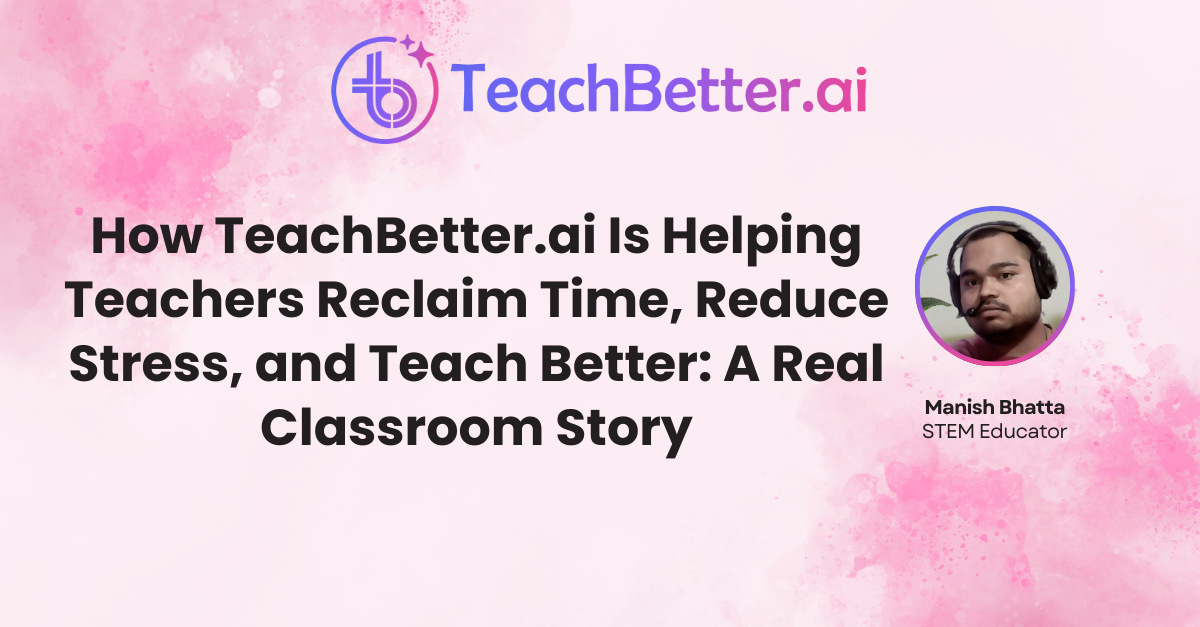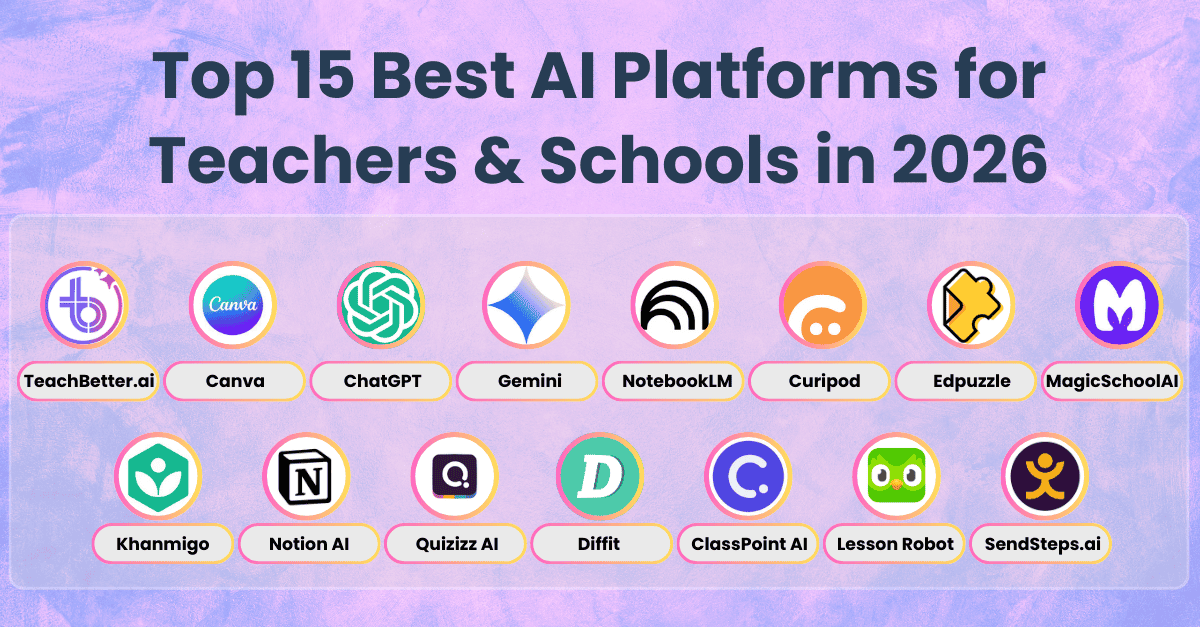The Knowledge Hub
Transforming CBSE and ICSE Education with AI
TeachBetter.ai
|
2 February, 2025

In India's diverse and evolving educational landscape, the CBSE (Central Board of Secondary Education) and ICSE (Indian Certificate of Secondary Education) curriculums hold a prominent position. Known for their distinct pedagogical approaches and comprehensive content, these curriculums aim to nurture young minds for future challenges. However, like any educational system, they face critical hurdles, ranging from managing diverse learning needs to addressing administrative burdens. Artificial Intelligence (AI) has emerged as a transformative tool to augment these frameworks, promising not just efficiency but also personalized learning experiences.
This blog delves into the features of the CBSE and ICSE curriculums, the challenges faced by educators and students, and how AI can address these pain points to redefine education.
Salient Features of CBSE and ICSE Curriculums
CBSE Curriculum: CBSE is one of the most widely adopted curriculums in India, designed to create a balanced approach to academics and extracurricular activities.
- National focus: CBSE aligns closely with India’s national education policies, offering a uniform and structured framework.
- STEM emphasis: The curriculum places significant focus on science, technology, engineering, and mathematics (STEM) subjects, preparing students for competitive exams like JEE and NEET.
- Skill development: CBSE integrates skill-based education, including coding and vocational subjects, as per the New Education Policy (NEP).
- Accessible and affordable: CBSE caters to a wide audience, ensuring education reaches urban and rural demographics alike.
ICSE Curriculum: ICSE, governed by the Council for the Indian School Certificate Examinations (CISCE), emphasizes a holistic and interdisciplinary approach.
- Comprehensive curriculum: The ICSE syllabus is detailed, encouraging analytical thinking and conceptual understanding.
- Equal weightage: Focus on both academic and non-academic subjects, such as arts, physical education, and environmental studies.
- Global readiness: With a focus on English language proficiency and diverse subjects, ICSE is recognized internationally.
- Project-based learning: Emphasizes research, practical application, and independent thinking through mandatory projects and assignments.
Challenges in CBSE and ICSE Education
Despite their strengths, both CBSE and ICSE curriculums face challenges that hinder optimal teaching and learning outcomes:
- Standardized vs. Individualized Learning
- A one-size-fits-all approach limits the ability to cater to diverse learning needs and paces.
- Teachers often struggle to address varying academic capabilities within the same classroom.
- Administrative Overload for Teachers
- Teachers spend substantial time on non-teaching tasks, including lesson planning, grading, and report generation.
- According to a report by UNESCO, Indian teachers dedicate nearly 20 hours a week to administrative tasks, reducing their focus on pedagogy.
- Limited Resources for Skill-Based Learning
- While CBSE and ICSE emphasize skill-based education, many schools lack the resources to implement these initiatives effectively.
- Practical exposure to coding, robotics, and other emerging skills often remains insufficient.
- Exam-Centric Pressure
- Both curriculums place a heavy focus on academic performance, leading to stress for students and a narrow focus on rote learning.
- Teachers feel constrained by time and syllabus coverage, leaving little room for creative teaching.
- Digital Divide and Accessibility
- While urban schools increasingly integrate technology, rural and underprivileged schools struggle with digital infrastructure, creating a gap in the adoption of innovative methods.
How AI Can Transform CBSE and ICSE Education
AI is uniquely positioned to address the challenges of CBSE and ICSE education by streamlining workflows, enabling personalized teaching, and bridging resource gaps.
1. Personalized Learning Pathways
AI-powered tools can tailor lesson plans, quizzes, and assignments to individual student needs.
- Adaptive learning platforms help students progress at their own pace, whether they're advanced learners or need additional support.
- AI identifies knowledge gaps through real-time assessment analytics and recommends specific modules for improvement.
2. Streamlined Administrative Tasks
AI can automate grading, attendance tracking, and report generation, freeing up teachers’ time for classroom engagement.
- Generating lesson plans aligned with CBSE and ICSE syllabi becomes quicker and more efficient with AI.
- Real-time data insights help administrators make informed decisions about curriculum and resource allocation.
3. Skill-Based Learning Enhancement
AI facilitates practical exposure to emerging technologies like coding and robotics by offering interactive simulations and tutorials.
- Platforms can simulate real-world problem-solving scenarios, helping students apply theoretical knowledge.
- AI-driven tools provide hands-on coding exercises tailored to the skill levels of individual students.
4. Enabling Holistic Student Support
AI tools can enhance students’ overall development by providing mental health support and career counseling.
- Chatbots and virtual counselors can guide students in navigating academic and emotional challenges.
- AI helps students explore career paths aligned with their interests through predictive analysis of their strengths.
5. Bridging the Digital Divide
AI platforms, accessible via mobile devices, enable rural and under-resourced schools to deliver high-quality education.
- Language translation tools break barriers in multilingual classrooms, making learning more inclusive.
- Cloud-based AI systems reduce dependency on physical infrastructure, ensuring equitable access.
Why Schools Should Embrace AI Now
The integration of AI into CBSE and ICSE schools is no longer a futuristic concept but a necessity to stay relevant in the 21st century. Schools that adopt AI can:
- Improve teaching efficiency and reduce burnout among educators.
- Provide personalized, engaging, and impactful learning experiences for students.
- Align with global trends, preparing students for the digital economy.
💡 Stat: According to the World Economic Forum, schools that adopted AI-based personalized learning platforms saw a 30% improvement in student engagement and academic performance.
Conclusion: Embracing AI for a Brighter Future
AI is not just a tool; it’s a catalyst that can redefine the way education is delivered, making it more inclusive, efficient, and impactful. By addressing the challenges in CBSE and ICSE curriculums, AI can help schools save time, empower teachers, and prepare students for the demands of tomorrow.
At TeachBetter.ai, we aim to leverage AI’s transformative potential to bridge gaps and empower educators. We are committed to creating solutions that align with these objectives, enabling schools to embrace the future of education with confidence.
Let’s reimagine learning together.
To stay updated on our latest developments, follow us on LinkedIn: https://www.linkedin.com/company/teachbetter/


